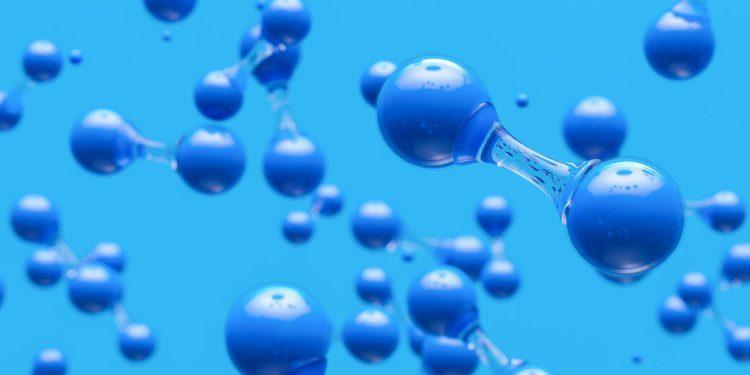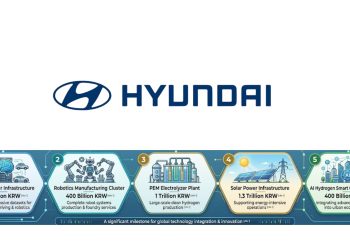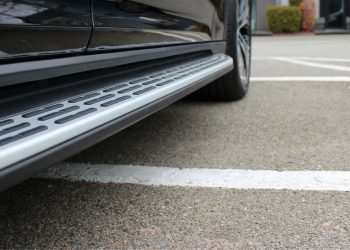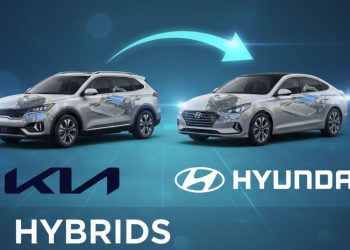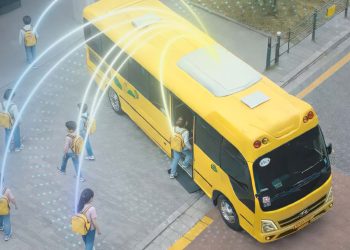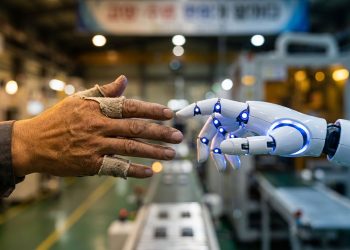HD Hyundai Infracore, a comprehensive machinery manufacturer subsidiary of the Hyundai group, will install HX12 Hydrogen Combustion Engine in its headquarters in the South Korean city, Incheon. In the presence of leadership and top management, HD Hyundai Infracore formerly known as Hyundai Doosan Infracore organized a ceremony in March to announce the new engine’s installation.
The HX12 Hydrogen Combustion Engine is a fairly new technology that’s developed from the environment’s perspective. South Korea plans to utilize more and more hydrogen combustion engines in the coming years. The station of the HX12 Hydrogen Combustion Engine at HD Hyundai Infracore will mark the beginning of these engines’ commercialization in the country.
The hydrogen combustion engine doesn’t leave behind carbon emissions which is good for the climate. Hydrogen combustion engines are adaptable as these can come with the exact components as existing internal combustion engines implying users don’t need to purchase a new setup. When compared with electric cars, hydrogen combustion engines turn out more economical.
South Korea looks forward to increasing its reliance on eco-friendly fuels and energy. It’s aiming for a carbon-free future using electricity-based batteries and hydrogen fuel cells. Hydrogen combustion engine technology can sometimes be on a hefty edge so most companies hesitate from shifting from the battery or fuel-run engines. However, the Korean government along with HD Hyundai Infracore are currently trying to break this barrier. By the year 2025, Korea will observe mass production of hydrogen combustion engines.
From next year, the commercial use of hydrogen engines will be possible with the endeavours from HD Hyundai Infracore. According to the company, they plan to make space for hydrogen-driven tech in large vehicles like trucks, and buses and also in construction machinery like excavators.
In November 2022, the South Korean government unveiled a hydrogen roadmap to strengthen the country’s hydrogen sector. The roadmap was designed to create large-scale domestic demand for hydrogen as well as develop the necessary infrastructure and establish a global supply chain at the same time. All these measures have been taken to ensure the country becomes more hydrogen-based.
A prominent reason for the Korean government for taking this approach was the pre-planned hydrogen import orders to Malaysia and UAE which were finally given in January this year. The hydrogen imports will arrive from 2027 onwards. The supply chain for hydrogen power generation is disturbed as of now. HD Hyundai Infracore and other major Korean technology corporations are looking to fulfil the soaring demand for hydrogen power generation.
Hydrogen along with nuclear power needs will boost the economy in the next 10 years. The Korean government has already decided on its next course of action which includes the development of ammonia-fueled ships in the next 3 years and liquid hydrogen carrier building in 6 years.
HD Hyundai Infracore has been focusing on hydrogen engine systems for a while. Next up, the global machinery manufacturer plans to upscale its existing engines. It is going to build a new engine which operates with hydrogen and natural gas simultaneously. Furthermore, Hyundai is also working on its 300 kW hydrogen combustion engine.

